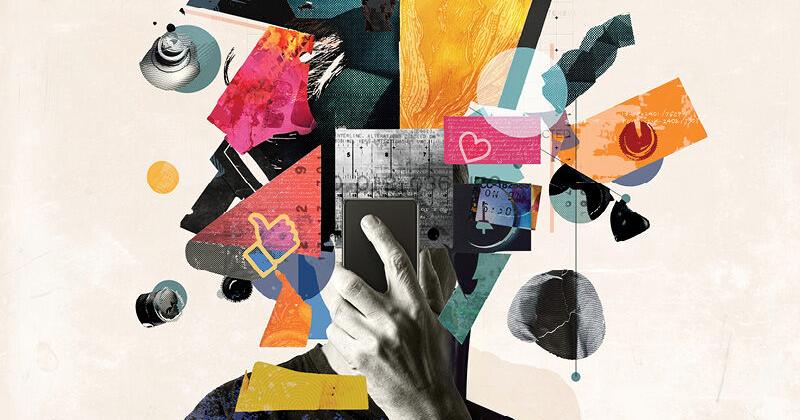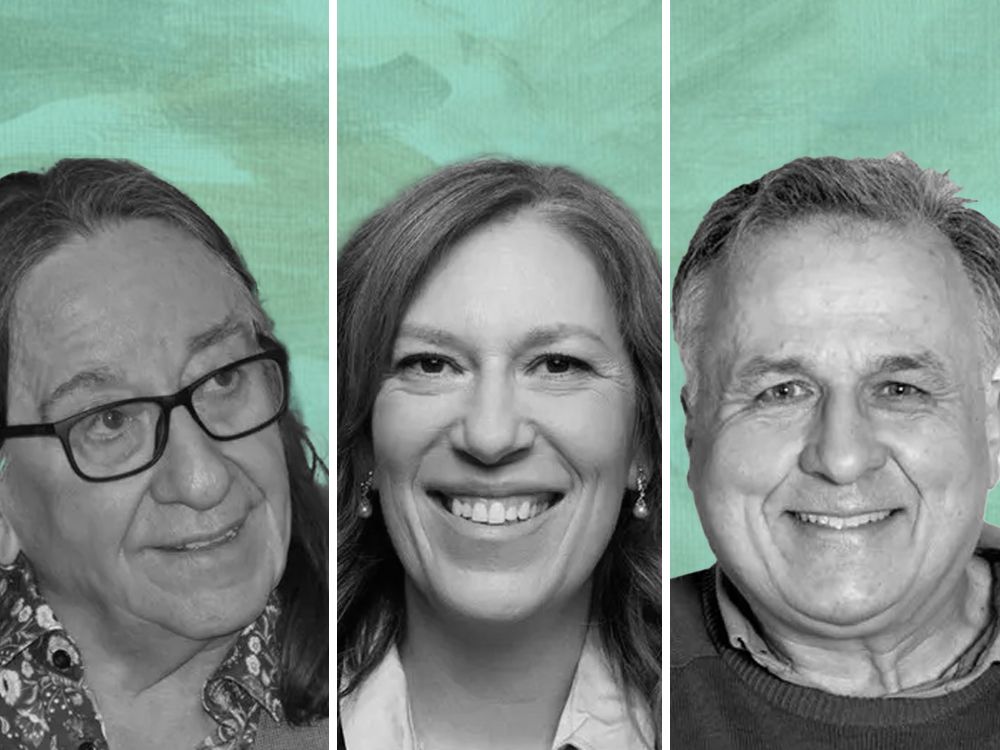Forget movies, music or fashion: If you want to understand a generation, look to its self-help.
The massively bestselling “How To Win Friends and Influence People,” published in 1936, peddled corporate-style people-pleasing tactics to those terrified of losing their jobs or desperate to get one at the height of the Great Depression. In 1992, “Men Are From Mars, Women Are From Venus” offered a (flawed) sense of order to a world trying to navigate gender politics in a post-sexual revolution, pre-Girl Power feminism era.
“The Secret,” which popularized manifestation as a cheat code to prosperity and abundance, had us chanting “ask, believe, receive” as the 2008 financial crisis dissolved faith in traditional mechanisms for a comfortable life. A decade later, “The Subtle Art of Not Giving a F*ck” sold like hotcakes, speaking to our collective disillusionment with the toxic positivity of the “Lean In” self-help era — just try harder, be more assertive; never mind those structural inequalities holding you back — that came shortly before.
The self-help of today has just as much to say about our world now. Born-and-bred in the viral petri dish of TikTok, it’s delivered to its audience in that most 2025 of postures: Staring at a screen and scrolling, scrolling, scrolling, blurring the line between access to information and total overwhelm. It’s also typical of our “everything old is new again” era, where existing ideas are rebranded in the same way that “Latte Girl makeup” is basically the Nineties fad for tonal brown everything.
One very popular example of this is the viral self-help concept “shadow work.” It has its roots in founding analytical psychologist Carl Jung’s notion of “the shadow self,” which is that often unexplored part of our consciousness where our deepest feelings reside.
Content creator Keila Shaheen — who was dubbed “the new empress of self-help” by the Atlantic — helped popularize it on TikTok, which propelled her self-published book on the topic, “The Shadow Work Journal.” This spring, Simon and Schuster published her guide to unlocking “the true you,” “The Book of Shadow Work.”
“The first book was my passion project. I was going through a really dark night of the soul, and I had a lot of low moments,” said Shaheen, a Texan behavioural therapy practitioner, certified sound healer and founder of the “self-discovery” app Zenfulnote. “The one thing that helped me get through that was doing my own form of shadow work.”
This took the form of journaling, she said, “diving into my psyche and branching out from what was on the surface of my mind, and really digging deep.” She felt called to “alchemize” this work and share it with others. “I was already on TikTok and couldn’t get enough of it. So, I started speaking about it and talking about my own personal journey and then sharing this concept of shadow work that isn’t often surfaced in schools and institutions,” said Shaheen. “That sparked a snowball effect of other creators being curious, and their followers being curious. It was very grassroots. TikTok was my own safe space, and it sprouted from there.”
Shaheen thinks this particular concept has resonated because it pairs the practice of journaling with question-based prompts. “Vocalizing our pain and trauma can be very difficult. We innately want to keep it inside. The mere act of pen and paper writing is transformative for people.”
This analog practice — which has ironically found so much traction online — can help the writer enter a “flow state” where deep feelings can emerge, Shaheen said. “People would have this experience of looking back and realizing, ‘I didn’t know that was in there.’”
She describes comments from people who said they have been in therapy for years and couldn’t reach the same insights they found within 20 pages of the journal. “It all resides in you,” said Shaheen. “You need to find those ways that work best for you to pull it out and come face to face with it.”
“There’s so much chaos going on in the world right now. I think a lot of people are yearning for growth, meaning and connection.”
It’s notable that shadow work, which turns our gaze inward, is having a moment when we are bombarded with endless external information and unsolicited opinions. “There’s so much chaos going on in the world right now. I think a lot of people are yearning for growth, meaning and connection,” said Shaheen. “We’re looking for ways to tend to and nurture ourselves.”
The impulse to create meaning in a chaotic world is echoed in many self-help strategies often served up on FYPs. There’s “Lucky girl syndrome,” which encourages us to behave as if we live in a universe that bends towards us kindly, sort of like “fake it till you make it” mixed with “perception is reality.”
Then there’s the enduring popularity of therapy-adjacent astrology, which has spawned endless gurus with their guides to surviving this retrograde or making the most of that eclipse. This lives at the other end of the personal agency spectrum, where we’re all just riding the waves of foreordained cosmic movements; there is comfort to be found in hearing that what feels endless roller-coaster of upheaval is just the planets doing their thing.
It’s not unusual for people to pull out a TikTok video during a therapy session and say that it describes them so well, said Toronto qualifying registered psychotherapist Madison Furgiuele. “My clients are regularly citing TikToks. I get a lot of clients talking about ‘eldest daughter syndrome,’ for example,” says Furgiuele, who also has a following online as @mentalhealthwithmaddy. “In that sense, it’s a really great tool because it’s describing things that people aren’t necessarily able to name themselves. It helps me get a better understanding of their perspective, and what they’re going through.”
But Furgiuele does have some reservations about social media self-help. Namely, “people thinking they have every problem,” or identifying with every single video served to them. “There’s a lot of self-diagnosing,” she said. “I have to remind people that just because you don’t like wearing socks, it doesn’t mean you have autism. There is misinformation that is spread.”
Lucky Girl Syndrome, for example, is the kind of viral self-help that gives Furgiuele pause. “If you’re working with a client that is not very well off, is really struggling in life or has had a lot of very adverse experiences, the last thing they’re going to want to hear is something about Lucky Girl Syndrome — because they’re not lucky,” she said. The same goes for posts that insist you should trust your gut; your gut knows best. “Try telling that to someone with anxiety. That’s the worst thing you could say to them,” she said. “There’s a time and a place for it, and there are certain people where that is so helpful for them. Therapy is not a one size fits all, and it’s the same thing with TikTok. You’ve got to take what works for you and leave everything else.”
The self-help that’s resonating now helps us feel understood by categorizing and classifying how we feel.
“People are looking for answers: ‘That’s why I do this,’ or ‘That’s why I am the way I am,’” Furgiuele said. She cites the success of a viral TikTok video in which she asked, “To the kids who were told they were a pleasure in class, How’s therapy going?” People loved it, she said, because it reflected what they thought was a unique experience back to them.
But when the algorithm is geared to show you more of what you pay attention to, you can get caught in an endless scroll of self-help that may do more harm than good. “I saw this quote — yes, on TikTok — that said, ‘You’re not a self-improvement project,’” said Furgiuele, who often cautions clients that there is more to their life than the pursuit of self-optimization. “Yes, you want to work on yourself, be the best version of you, but you don’t have to do it all the time. It’s OK to just be a human.”



